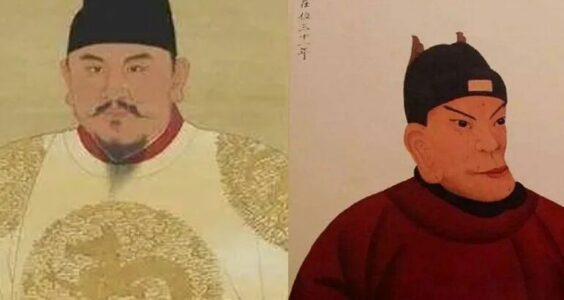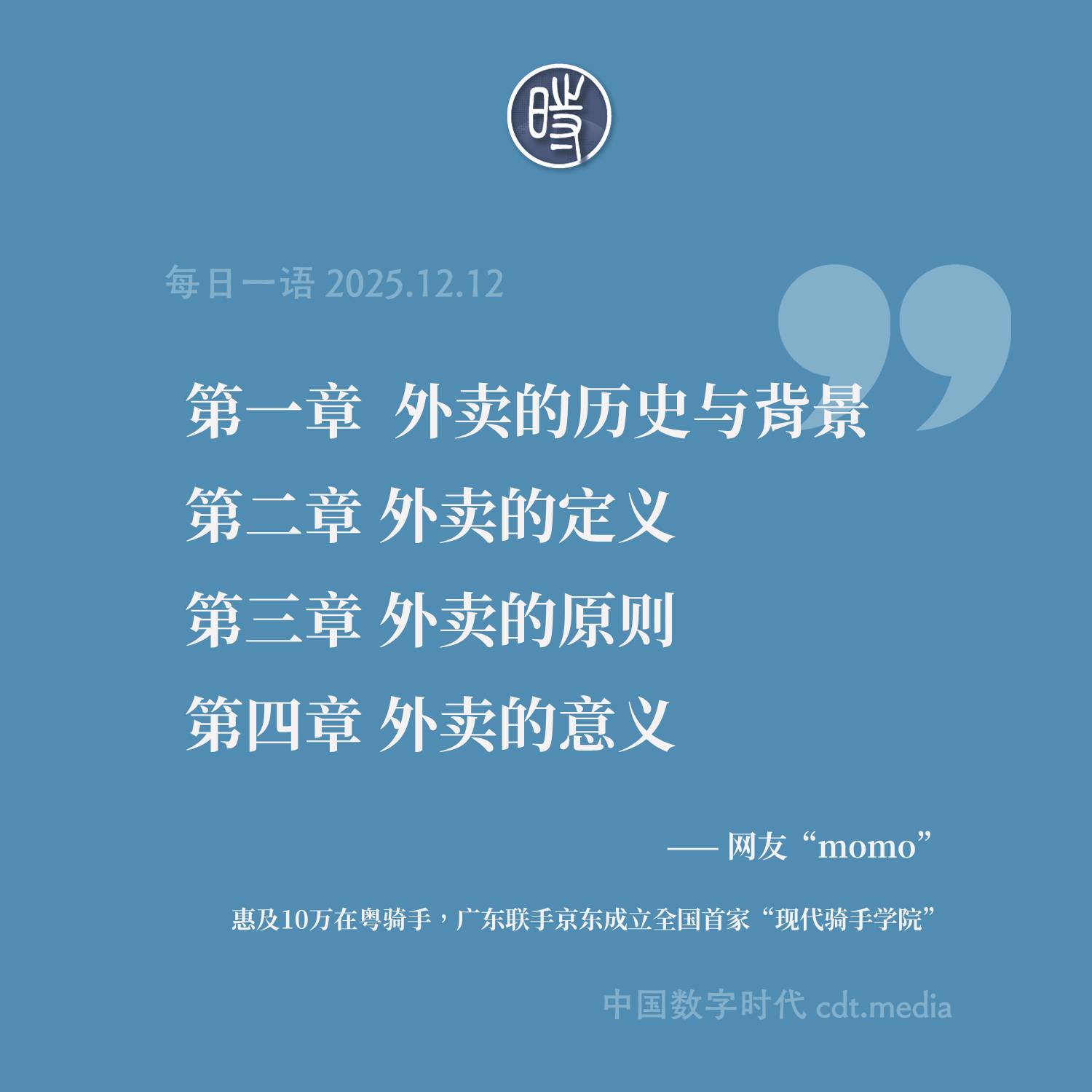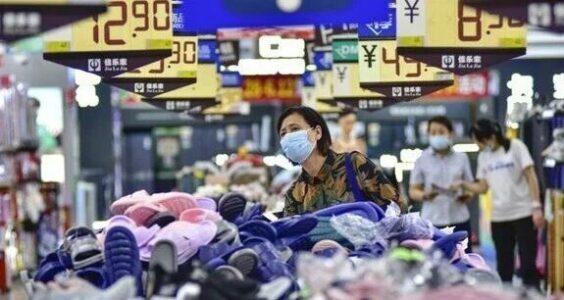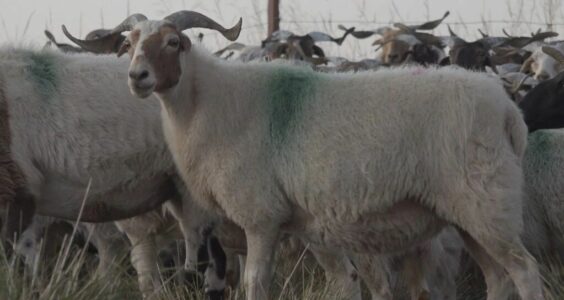

1 夏牧场:最后的牧歌
青海湖的初秋,已经很有些寒意。9月的那个下午,天逐渐黑下来,我们一行人一路开车,靠着问路人,一程又一程地向山里摸索。去年采访过的娘娥加家的夏季牧场究竟在不在前方,其实谁都说不准。
山上没有信号,只有逐渐往山里深入,先从那座神山问起,再经过那条河流,再问起村落,最后才能找到相识的牧民打听到朋友的牧场。幸好,熟悉的人越来越多。突然,在一个白色的帐篷门前,看到了正在等待我们的老朋友。
娘娥加一家是青海湖周边一户典型的藏族牧民家庭,还在用传统的方式放牧。他们是我去年拍摄的纪录片《谁的餐桌,谁的牧场》主人公之一。距离拍摄时间过去了一年,我又来到了青海,既想让采访对象们看看成片,也想更进一步了解他们的近况。
草原的夏季快结束的时候,娘娥加一家就搬来了位于草昏(音)的这片集体共用的夏牧场上。这里外人罕至,除了娘娥加三叔住在一两公里外的山腰上,其余人家都在几公里之外,周围几乎看不到人影儿,只能远远望见草场上的白色帐篷。除了牛羊和藏獒,最常见的生物就要数高原鼠兔和白腰雪雀了,还有就是偶尔会在夜间造访的狼。

◉娘娥加家里的羊群。图片:焦小芳
然而,明信片般的景象之外,草原上的牧民生计却越发艰难。2023年起,我们在青海湖周边做牧民社区影像时,了解到了牛羊价格大幅下跌和进口冻肉冲击牧区市场的情况之后,参与了食通社的联禾计划,想要记录新的市场变化对牧民生活的冲击。去年11月,我和伙伴环绕青海湖一周,完成了拍摄。
青海省虽然不是全国牛羊主产区,却是五大牧区之一,而且是全国牦牛藏羊出栏量最高的省份。环青海湖牧区农牧民收入的一半以上都来自藏羊产业。价格下跌直接影响他们的生计。牧民们回忆,他们已经在牛羊的价格下跌的市场行情中艰难地熬过了四五年。
全国数据也显示,羊肉价格自2021年进入下跌周期,活羊的价格也一路走低。牛价也跌惨了,2024年,国内牛肉价格一度跌到近5年最低,活牛价格更是跌到近10年的最低水平。
冲击之下,已经有牧民熬不过市场低谷,彻底卖掉牛羊退场。
今年,娘娥加一家还没卖羊,准备搬到冬季牧场后等人来交易。他们也了解到价格比去年涨了一些。那么,价格回涨会让牧民们更好过一点吗?我的回访就是在这样一丝丝希望中开始的。


◉这天,一只小牛犊站不起来了,只能侧卧在草地上,叫声也越来越弱。母牛一直不肯离开,一边吃草,一边隔着大概两米的距离回应着它。直到深夜,母牛依然守护着它,到它身边喂奶。但娘娥加的父亲查看了小牛犊的状况后,已经决定将它送往冬牧场。在那儿,这只小牛犊可以给他们换回一些保险赔偿。图片:焦小芳

◉第二天凌晨一早,跟小牛犊一起送回冬牧场的,还有只羊。图片:谢小丹
2 切吉西路:买卖博弈
深入牧区之前,我们发现,本地市场的零售肉价也涨了!
在青海西宁一家售卖牧区草原牛羊肉的铺子里:草原牛肉软肉(不含骨的牛肉)31元/斤,牛排(带骨)26元/斤,而羊肉则是32元/斤。去年11月我来拍摄时,本地羊肉只有21、22元/斤。
全国市场的数据也差不多:整个9月,全国牛肉平均价格70.90元/公斤,羊肉69.59元/公斤。但是,对比2023年,牛羊肉依然每公斤跌了10元左右。

◉从2023年7月至今,全国牛羊肉价格均已大幅下跌|图源:中国畜牧兽医信息网
我走到店里,想问问肉价涨了的原因。店员告诉我,冬天的牛羊是基本上是饲料喂的,而夏季是吃草的。饲养方式会明显影响牛羊肉的口感。一般来说,育肥牛羊屠宰后太肥,腹脂油多,膘厚。对于习惯吃手把肉的当地消费者来说,草膘肉自然要更受欢迎。所以9月的价格本来就贵一点。
离开西宁,正式的回访旅程从142公里外的共和县开始。通向共和县的G6公路两旁就是连绵的草场,公路两旁标注“注意牲畜”,成群的牦牛和藏羊或站或卧于草场之上。共和县是海南州的首府所在地,约定俗成,共和县的切吉西路就成了活羊交易中心,周边牧民都会来此卖羊。
去年,我就是在这条路上偶遇了另一组拍摄对象——马克利的父亲。当时,他就在这条路上和伙伴们等待收羊。收羊人相当于畜牧行业里的“中介”,大多是本地的回族人。牧民们养大的牛羊就是通过他们一步步进入市场,走上餐桌。
夏天草膘季是收羊人一年当中最繁忙的时段之一。我约好了马克利晚上碰面,但他临时爽约了,要到黑水河收账。于是我只好再像去年一样,重返切吉西路碰碰运气。

◉市场上只来了一只羊,周围的收羊人们谁也不肯买下它。图片:谢小丹
活羊交易一般只在上午进行。这一天,只来了一只羊。五六位收羊人聚在路边,时不时看看手机里牧民发来的牛羊视频,品鉴品鉴,聊聊天。他们不担心生意,这个季节交易一般都在山上进行,年轻人们都去了,可以一次性收上七、八十只甚至上百只羊,牧民们便不再需要来市场了。

◉给收羊人们放映去年拍摄的纪录片。图片:谢小丹
但他们都对这只羊兴致寥寥。收羊人们说,这羊有问题,问题在脑子里。所以眼神斜视,还斜着走路,无法走直线。
可我怎么看,也看不出这只羊像是有病的样子,更可能的原因是价谈不拢。经验丰富的收羊人可以凭直觉估量出每只羊屠宰后的产肉量,再结合市场价格合理出价。如果出价太高会亏损,出价太低就会被其他买家抢走。
据他们说,这只两岁多的母羊太瘦小,只有20多斤肉。按照今年羊的批发价25元/斤,牦牛27元/斤计算,最高只值得他们出600元。



◉收羊人们轮番到近旁看羊,又和藏族牧民多番讨价还价。焦小芳在旁拍摄。图片:谢小丹
这只羊的主人是个藏族大哥。他说,羊没病!为了卖掉这只羊,他一早从三、四十岁公里外驾驶微型货车赶来。他要价900元,劝退了几个上前看羊的收羊人。几波收羊人轮番低声和藏族大哥交谈几句之后,都离开了。
一直到12点,守在切吉西路上的收羊人们各自散去了,唯一的羊最终也没找到买家。

◉藏族大哥抚摸着他未卖掉的羊。图片:焦小芳
3 养羊人困在贷款中
牛羊价格下跌,直接就会让牧民财产缩水。娘娥加的父亲去年曾向我解释,在2019至2020年间,一只被阉割的公羊至少能卖2000元上下,而过去两年里,即使品质最好的羊,价格也不超过1300元。
我在青海海北州金滩乡遇到的牧民王生一行人更是羊价下跌的直接“受害者”。“羊价高的时候我们收羊,收完之后羊价塌了。”收了羊后,他们便被套牢了。
价格下跌还减少了他们的收入。与此同时,养殖的固定支出和每年的花销都没有减少。我拍摄的牧民都提到了自家草场不够的情况,为了牛羊获得充足的食物,他们或要租用更多草场,或要购买饲料。牛、羊售价不理想时,为了维持收入水平,他们还会加大养殖规模,这就形成了恶性循环。

◉在青海湖边放牧的牧民们骑着摩托将羊群收回羊圈。图片:焦小芳
入不敷出时,牧民们就想到了借贷,我的拍摄对象们都在举债放羊。我还听说,在我另一位拍摄对象丹增宗支的家乡,有户养了1000只羊和500头牛的人家甚至背负着500-600万的贷款。
去年碰到王生时,他还有25万贷款要还。今年5月,卖掉了小羊羔的王生获得了17万左右的收入,但他每年要为1000亩草场支付5万元,因为草场承载力有限,他还需要额外再购买约8万元的饲料。
剩下几万元的收入,他用来偿还贷款了。到今年我再来时,贷款还剩下20万。每年到了还款日,他只能先向亲戚朋友借钱,等新贷款到账后再归还他们,如此的循环借贷已经持续了7、8年。
按照王生自己的计算方式,他还要至少4年才能把贷款还清。
前提是,现在偷偷放牧的日子还能持续下去。
4 禁牧区的“单身汉联盟”
之所以偷偷放牧,是因为王生村里集体放牧的草场就在青海湖边上。如今,祖辈传下来的草场已经变成了旅游景区,被划为禁牧区。
禁牧之后,3000亩草场一年发放的禁牧补贴大概3.6万元,村里800多人分,一人一年240块,“连件好点的衣服都买不起”。
为了节约草料投入,村里的牧民们打起了游击,偷偷回到草场放牧。若不如此,他们以贷养牧的生活也难以维系。
这群牧民几乎都住在救灾帐篷里,远离家庭。帐篷里的家具很简单:一张床、一个炉子,简单的桌子架子上是生活用品、方便面和饼干。帐篷跟着羊群迁徙。王生在几十公里外的村里有个房子,因为长时间无人居住,早已破败,“哪有钱修”。

◉王生和他的哥哥一起住在这个蓝色帐篷里。图片:谢小丹
再说,羊群也离不开人。每天早上,王生要把羊赶到草场上去,让他们觅食,傍晚再收回来,每天都要重复放羊、收羊的动作。他还要留心羊群的健康状况,发现病羊了就需要及时买药医治。
今年9月13日,当我来到王生所在位置时,他正在收羊。
羊群就在青海湖边穿过半人高的芨芨草丛中觅食,它们周围的草已经被啃得差不多了。王生必须骑摩托车赶到它们吃草的地方,和村里其他牧民一起,驾驶摩托车冲入羊群,嘴里时不时地还要大声呼喝。羊群受惊后,就会群体四散奔逃。这些牧民们留意着羊群的动向,骑车追赶或阻拦,引导逃散的羊返回各自的羊群。
持续了一个多小时,村里3000多只羊才最终各回各家。

◉每只羊身上都带着牧民自家的记号,方便他们从羊群里辨认自己的羊。图片:焦小芳
等到深夜,牧民们也终于空闲下来,我才找到时间给几位牧民们一起放映去年拍摄的纪录片。跟娘娥加一家人比起来,他们更像是个单身汉联盟。用他们的话说,是日子太苦,“老婆跑了”。
那天晚上,我再次问起他们,还有没有别的可能性。
“虫草有吗?”在青海的日子里,我已经听说别的牧民靠着挖虫草,还能增加一笔收入。“我们这里连虫草都没有。”
外出打工呢?“一天一百多块钱,(贷款)什么时候能还上?”
电商呢?自己做屠宰、加工,甚至绕过收羊人自己找客户呢?还有别的补贴吗?能想到的办法都被他们否定了。
“那以后怎么办?”我继续问了一句,有些替他们着急。
他们的答案很简单——盼。盼羊价上涨,从今年盼到明年,明年盼后年。
5 出路?
也有人摆脱了贷款的束缚。
去年,我跟着一位回族收羊人,拍摄了一个藏族家庭。年轻的藏族小伙旦增宗支和他的父亲由于草场不足且急需资金,以平均每头4500元的价格卖掉了8头牦牛。这个价格相当低——按照2020年前后的行情,牦牛正常价格在每头6100元左右,最高时能达7000多元。此外,四只羊一共只卖了2300元。他这才连本带息还清2.2万元贷款。

◉回访是社区影像一个重要的部分,为牧羊人回放纪录片。图片:焦小芳
等我重新回到青海联系旦增宗支时,发现他已经搬到了共和县,用每月190元的价格与妻子和快要三岁的儿子一起租住在一个小房间里。
巧合的是,他现在的住处离交易活羊的切吉西路很近。走出院门,我就能听到附近院子里的羊叫声。
今年价格涨回了点,提到去年卖掉的牛羊,丹增宗支略有些无奈,“那时候价格很不好,但不卖,草又不够,真的是好亏。”


◉去年的旦增宗支和他的妻子。图源:纪录片《谁的餐桌 谁的牧场》、焦小芳
我很好奇,旦增宗支来共和县靠什么谋生。答案有些让人意外。四处求职碰壁后,他选择了送外卖,每天至少要完成30单。这是20多岁的他第一次离开牧区,来到城里工作。城市的生活常常让他提不起劲来,无论多晚起床都会觉得很累,而在牧区就每天精神奕奕。
“放牧比这个简单太多了。”从自由的牧民到被困在算法中的外卖员,他必须艰难地适应身份的转变。在他眼中,这个职业充满了危险,必须要把车骑得很快才能避免超时。不久前,他才因超时被罚200元,这相当于他两天的收入。危险还来自于偷窃。做了外卖员以后,他丢过餐,这两天还因为疏忽弄丢了自己的手机,只能用妻子的手机继续跑外卖。
他还要尽可能避免送餐时跟态度恶劣的人起冲突。有一次,一位顾客羞辱他“你不就是个送餐的?”气得他把对方的饭都摔了。

◉旦增宗支在共和县出租屋里观看我去年拍摄的纪录片。图片:焦小芳
我本来计划顺着去年的故事继续拍摄旦增宗支的故事,他很高兴地答应了下来,让我第二天跟拍。结果没想到,第二天早上我按照约定的9点来到出租屋时,却发现他还没有起床。我本能地以为遇上个爱睡懒觉的年轻人。没想到,过了一会,他懒洋洋地走出来,洗了把脸告诉我,昨天晚上临时接到要跑通宵的单子,凌晨6点才回来,现在非常疲惫,不能带我们去拍摄了。
他很想念放牧的生活,“最舒服的在自己家里放牧。但是草场不够用,是一个很大的问题。如果牛羊太少,一家五、六口人又不能指着它过活。无奈就想会不会有别的出路,才会选择来这里工作。”
也许这次找寻出路的尝试最终要以失败告终。他告诉我,过几个月,他就打算回去了,可能重新放牧去。
然而哪怕今年价格涨了一些,市场矛盾并没有根本扭转,譬如进口肉仍大量涌进市场。2025年前三季度,牛羊肉累计进口量仍稳健,其中光牛肉就进口了212.5万吨,同比增长1.0%。
虽然进口肉价格也大幅上涨——牛肉平均到岸价格5225.12美元/吨(约37.88元/公斤),羊肉平均到岸价格3846.16 美元/吨(约27.88元/公斤),同比上涨23.5%。但哪怕经过从口岸到零售的层层加价,仍比60-70元一公斤的本地肉存在明显的价格优势。
于是,全国范围内,牛羊养殖也有退场现象。至2025年前三季度末,全国牛存栏9932万头,同比下降2.4%,环比下降0.6%;全国羊存栏2.9亿只,同比下降6.9%,环比下降3.7%。
牧民们期盼的更好的价格行情,真的会到来吗?
这是食通社第 766篇原创

食通社
作者
焦小芳
纪录片打工人,用影像探索世界

食通社
作者
谢小丹
前农业记者,梦想有一小块地自己种
食通社说
当来自遥远国度的、价格低廉的冷冻牛羊肉,大量出现在青海湖周边牧区的市场和餐桌上时,世代以放牧为生的牧民们,他们的生活到底发生了什么改变?
在联禾创作计划支持下,本文作者焦小芳和藏族伙伴琼吾·旦增于2024年带着摄像机,走进了西宁繁忙喧的帐篷和砖房,用镜头真实地记录下这种冲击带来的影响。2025年作者又重回到青海,持续跟踪拍摄和讲述牧民们的故事。
12月19日晚19:40焦小芳和琼吾·旦增导演的纪录片《谁的餐桌 谁的牧场》 将在广州琶洲南TOD 【丰年庆空间】放映,映后焦小芳导演会线上连线进行Q\&A,欢迎来看!
关于联禾创作计划
关于食通社联禾创作计划:为了解当今食物和农业的现状,也为了支持更多的人去探讨食农问题背后的复杂性。食通社携手多家公益和媒体伙伴共同发起2024联禾创作计划,支持媒体创作者和研究者在食农领域开展调研,并资助其完成面向公众的内容创作。
经过6位评委多场面试后,最终选出18个创作项目获得食通社联禾创作计划的支持,其中已发布12篇:
《保洁员阿梅,想好好吃饭 | 打工人餐桌》
《在马来西亚,中国商人只要A级榴莲》
《“假肉”驱逐真肉:牧民,餐桌,亚马逊》
《西瓜保甜,种西瓜保苦》
《从过山瑶到“天选采菇人”,一朵鸡枞菌引发的采菇狂潮》
《马兰在深圳,没有饭搭子》
《儿时的甜蜜为什么消失了?》
《科技、农药与飞手:“技术革命”的另一面》
《谁逼走了菜市场?》
《生鲜电商会让菜市场消失吗?》
《当无人机成为新农具:谁在定义“科学种地”?》

▶︎2025年,联禾创作计划再度启航,继续支持创作者和研究者去追问食农的背后的问题。我们希望邀请记者、媒体人、研究者、影像工作者一起来寻找问题的答案——无论你关注食农政策、环境、餐饮行业、农村发展、消费文化,还是仅仅对食物的背后感到好奇——都可以参与。
编辑:裴丹
版式:三白
扫码打赏,支持原创知食
▼

▼
点击关键词,进入更多文章合集
种子|农技|政策|发酵|营养|水果|渔业|外卖|活动|招聘|菜市场|畜牧业|食日谈|分享会|读书会|丰年庆|小农故事|气候变化|乡村发展|合作经济|都市农耕|食品安全|生物多样性|疫情与食物|虚假解决方案|生态农业实习计划
北京|河北|上海|广东|广西|河南|四川|江西|新疆|陕西|香港|重庆|浙江|江苏|贵州|台湾|内蒙古|菲律宾|加拿大|俄罗斯|墨西哥|意大利|美国|英国|德国|荷兰|泰国|瑞典|日本








星标我们,不错过更新
「点赞」「转发」「在看」「留言」
▼ 扩散美味知食










